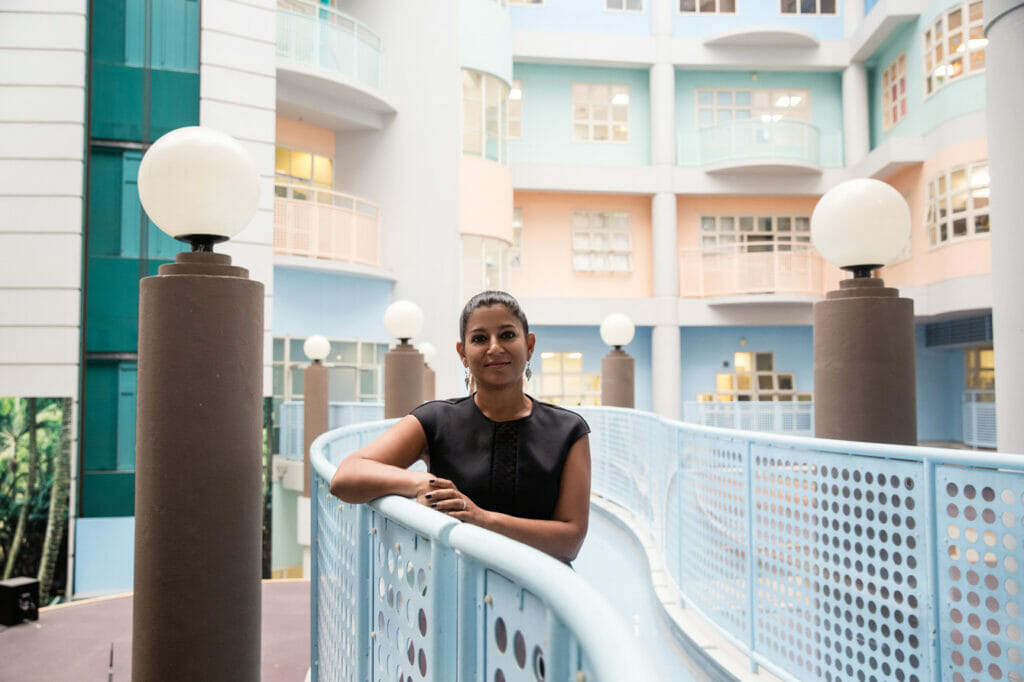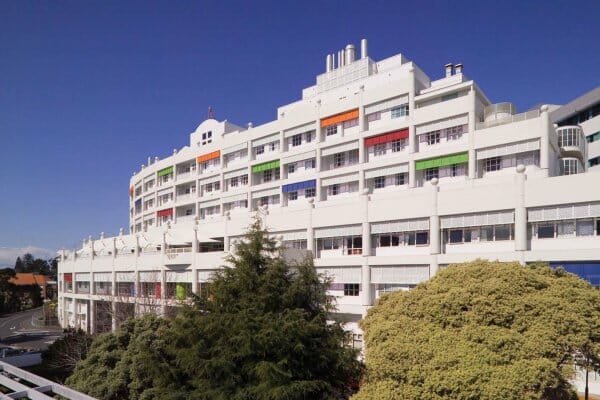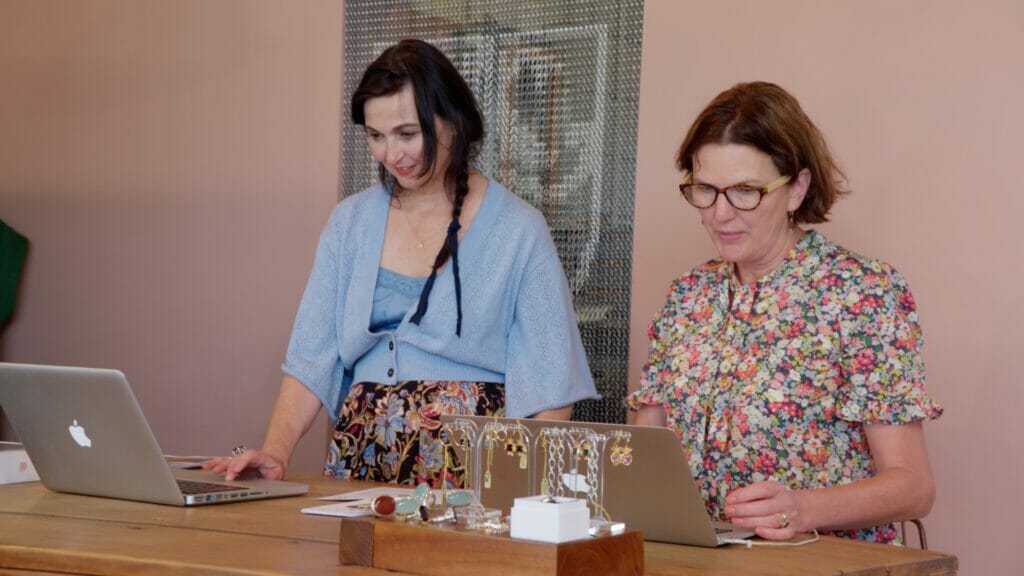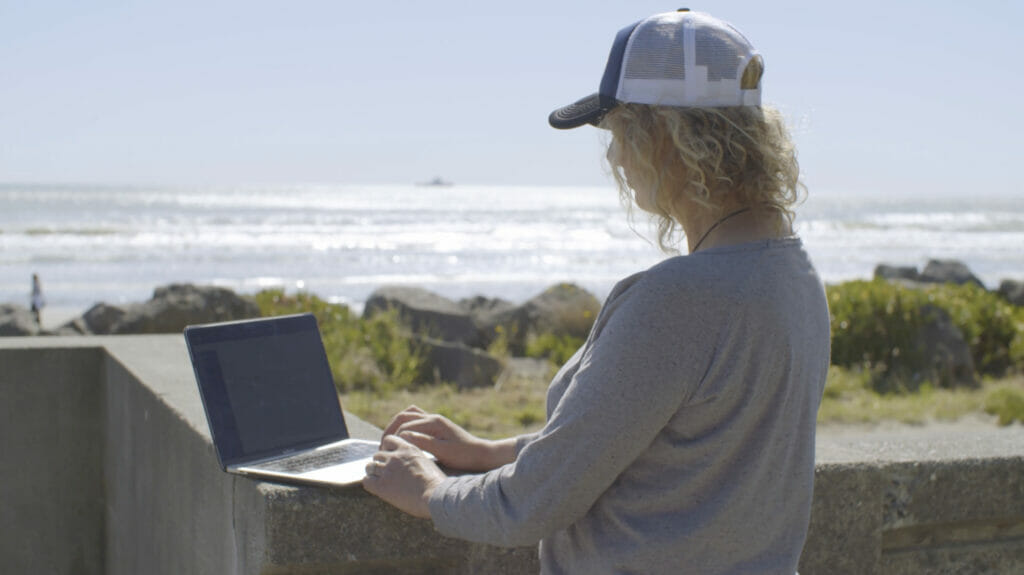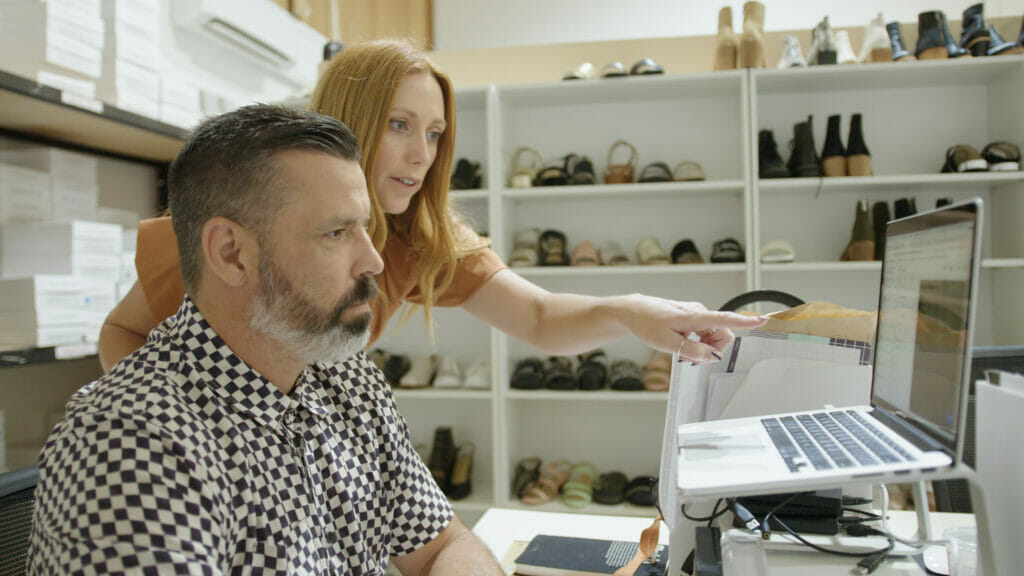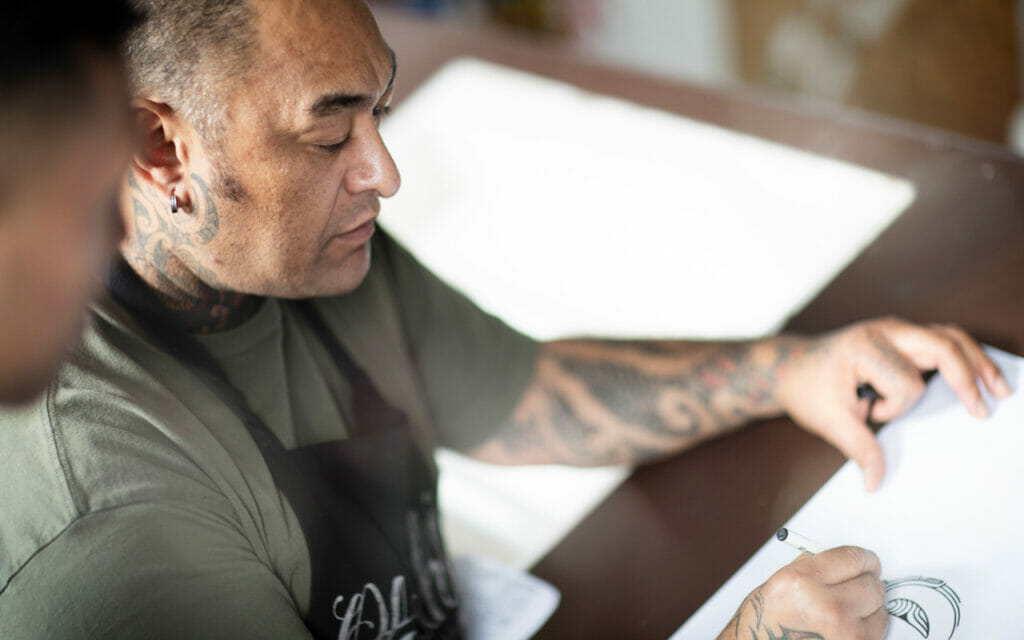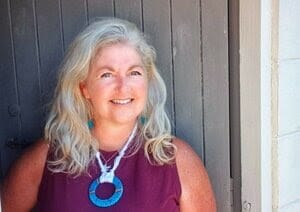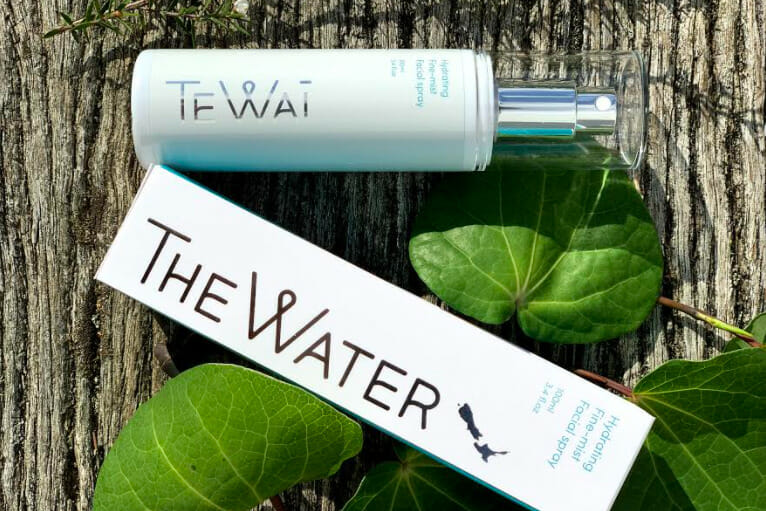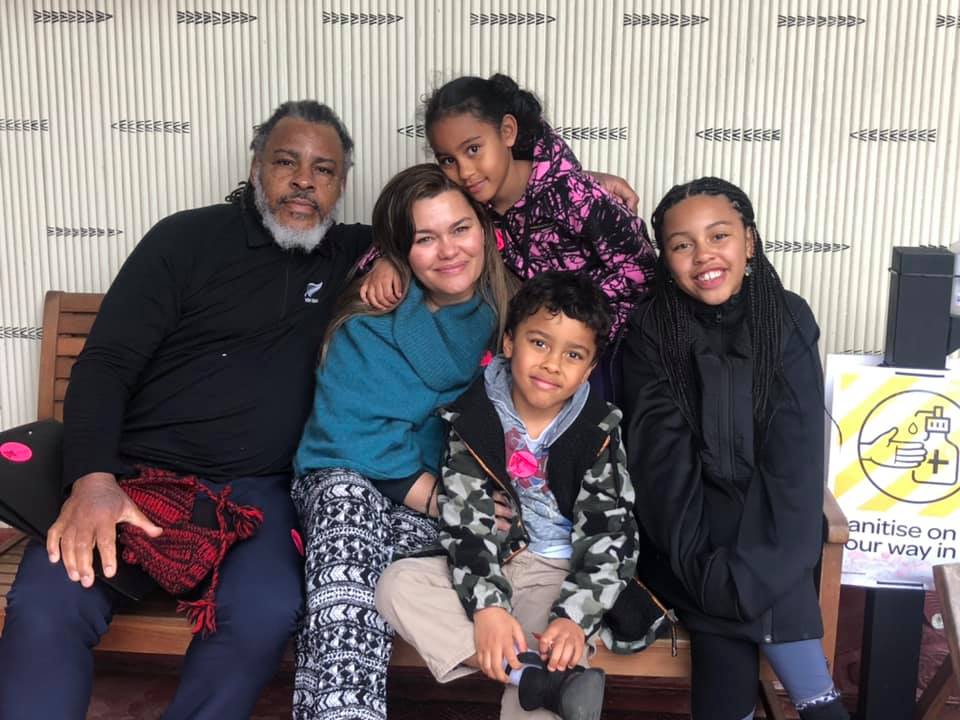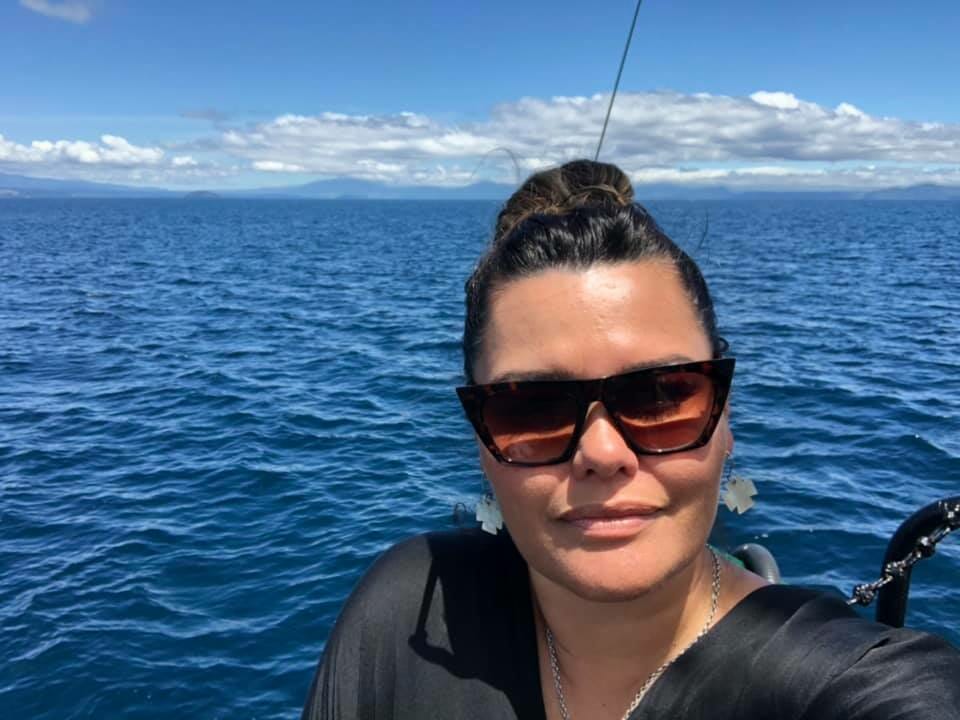How did your volunteering experience and your passion for children’s health and wellbeing prepare you for the role you have at the Starship Foundation?
I had the privilege of working with the Life Education Trust for over a decade, I set up the local Manukau South Trust and I was on the national board. Seeing the work around inspiring tamariki to make positive choices was really energising and the more time I spent with families, the more I felt compelled to leave a positive footprint, not only for my own kids but for future generations of New Zealanders.
It also gave me a greater perspective on what it’s like to work at the grassroots level. I got a birds-eye view. From the national board and at the local level you’re hustling away, rallying volunteers and connecting communities, and at the board level, you’re focusing your energies on making sure you’re fit for purpose, building capability, making sure you’re actually as impactful as you can be. So my experience definitely gave me that feel for how to roll up my sleeves but also a sense of direction in seeing where the path needs to go.
You’ve been with the Starship Foundation for three years now. Tell us about it!
Starship is one of the most trusted brands in New Zealand and has a long history of making a difference for Kiwi kids. We were challenged by Dr Michael Shepherd (Starship Clinical Director) to think “what does best in class look like” for a Foundation and a national children’s hospital?
What we discovered was that we needed to double our income in order to achieve the impact that we wanted. So we’ve been on a bit of a transformational journey over the last three years. I’m very pleased to say that we set ourselves a target to generate income of 20 million dollars by 2023 and we actually managed to achieve that last year.
Our ambition is to give our children better health and brighter futures. We are a purposeful organisation, so how do we make sure that we are purpose-led? We’ve focused on having a great culture, where people feel valued and they know the impact we’re actually having. We have invested in deeper and more meaningful relationships with our donors and getting our supporters to work collaboratively together to have a greater impact.
We’ve invested in ‘extraordinary’ storytelling, ensuring that people know that any little amount of money makes a huge difference when added to what others give. One of our partners is Mercury. Their customers on average give $3 a month as part of their bill, but collectively it contributes almost one million dollars a year to the Foundation. Everyone can make a difference and just being able to demonstrate those impactful stories as well as our national brand story is just soo important.
There’s still that perception that we’re an Auckland hospital, but Starship works for all of New Zealand’s children. And we’re not just a hospital service – we have a thousand community clinics, we have our national air ambulance service, we’re in every touch point throughout the country supporting all of our GPs and all of our hospitals as well. Ultimately we’re trying to make it easier for our donors to get involved.
We’ve also been engaging with different audiences, including a younger and more diverse audience, and like everybody we’re also building our digital capabilities. It’s really exciting.
What are your priorities for the Foundation over the next three years? Can you share your “North Star” with us?
We’re really focussed on investing for impact in four key areas – Saving & Extending Lives, Child Wellbeing & Whānau Support as well as Prevention & Equity. We have about $35 million dollars worth of impact programs in play that are designed to save and improve lives through advancements in clinical care or keeping our children out of hospital and healthy in their community with preventative programs. We’re anchored in child centered care and whānau support, ensuring that no child is left behind because of their geography or ethnicity.
Our most urgent and vital need right now is the expansion of PICU – our Paediatric Intensive Care Unit. That’s our immediate priority. We start breaking ground at the end of this year, and would like to have the first stage up and running by winter next year with the entire project completed by 2023.
But if you ask what our “North Star” is, it’s actually about us shifting the dial and decreasing health inequities for our tamariki. That’s where we’re focusing our efforts, that’s where we need increased innovation and investment.
Through all our conversations with the teams in Starship, a common thread is their passion to do good. What inspires you the most about working for the Starship Foundation?
It’s the ability to play a part in giving children brighter futures. It’s the children and the families that get us up in the morning and give us a spring in our step everyday. There are so many wonderful experiences that you get with families. One of the key roles of the Foundation is whiria te tāngata, weaving the people together, and that’s exactly what we’re doing. Everyday we weave generous donors with incredible clinicians, brave children and family. It’s humbling and it’s energising.
One of the most memorable stories that I have was actually in my very first month when I joined the Foundation. I spent an evening with a couple who had donated an O-Arm which is a 3D imaging machine. We then met with the surgical teams who had finished their first day of surgeries using this new generously donated machine. And, that evening we met a couple of families which normally we wouldn’t have been able to do because it usually would have taken days or weeks for them to have their initial recovery. We had it in hours, and I sat there and thought ‘oh my goodness, from weeks to hours’ that’s the sort of impact that we have thanks to the generosity of our donors.
Is there a particular Starship story or experience that comes to mind when thinking about the impact of Starship for all of New Zealand’s children?
Unlike other charities with a single minded focus, there are so many parts that we play. We actually have more than 150 programs in place and they’re impacting Kiwi kids and families in so many different ways. From intensive care through to research in diabetes, there’s a vast array of extraordinary stories at play every day.
When I think about why I actually joined the Foundation in the first place, my children’s half brother has type 1 diabetes, and he almost lost his life and eyesight in his very first year. He was actually the youngest child to be diagnosed with type 1 diabetes and in those initial tough few years, he went back to England for three months of the year to be able to access a particular technology that wasn’t available in NZ at the time. Seeing how my childrens’ brother’s life had been transformed was amazing. He had a childhood and was able to go to school, he was able to play with his brothers. I realised that I wanted to play a part in making a difference for families all over New Zealand and I’m really proud that we’re investing a significant amount towards research into diabetes.
One of the things we’re working on is ensuring that that technology is available to every single child in New Zealand, and not just for those that can afford it. That’s what I’m most proud of that the Foundation does. We run pilot programs always thinking about what future care programs could do differently. The government can only afford to carry on the services as they are now, and we have the ability and generosity of donors to actually be able to change that and shift the dial.
What does the future look like for New Zealand children’s health outcomes?
I think we’re in a really challenging situation without a doubt. We can’t deny that our health outcomes are not where they should be. We rate 38 out of 42 in terms of child wellbeing in the OECD and a lot of that is systemic issues related to child poverty. Any solutions are not just looking at hospital care solutions but holistically looking into healthy, affordable housing and access to healthcare.
What I see is a real desire for us to get on top of this and address it. There is a real push to do things differently and think about a health system and model of care that could be quite revolutionary. I feel optimistic about the conversations we’re currently having and the investment that we’re making, and, that we are going to shift the dial on our health outcomes. It’s not going to happen over night- it’s going to be a slow journey but I feel optimistic about embracing that journey now and getting it underway..
Why is overlaying everything the Foundation does with an equity lens so important today?
We all recognise that in Aotearoa New Zealand, people have differences in health that are not only avoidable but unfair and unjust. Equity recognises different people with different levels of advantage require different approaches and resources to get equitable health outcomes. Inequity exists within almost all aspects of health care in NZ – Starship is no different. For this reason, we are overlaying an equity lens on all that we do and across all of our investment into our impact programs.
What has working at the Starship Foundation taught you?
To be grateful to have happy and healthy kids; to be grateful to be surrounded by people who are compassionate and generous. I’m learning and growing every day. I don’t come from a medical background, I come from an fmcg, telecommunications and wellbeing background so health and being in this industry continues to be a learning experience for me.
There are so many unsung heroes in the hospital – it amazes me how there are children having life-saving surgery while we’re having a cup of coffee. Our survival rate in PICU is 96% which is incredible, but in those challenging times, I always remember one family saying “thank you for making the unbearable bearable”.
What are you the most proud of since starting at the Starship Foundation?
I think the thing I’m most proud of is our journey through Covid. I felt so proud of our team rallying together. I remember before we went into lockdown, Starship General Manager Emma Maddren gave me a heads up saying, “things are going to be very different next week and we’re going to need a staff and wellbeing centre to start in three days”. Our team dropped everything to get this up and running.
We worked with our donors and our corporate partners and just made it happen. And in turn we built a whole range of skill sets. Our digital capabilities went through the roof and our relationships grew so much stronger. The things we didn’t think we could do, we just suddenly found solutions for – it was amazing. We always talked about connection, communication, clarity and care – if we can keep making those things happen, we can make it through. And we’ve come out a stronger organisation for it and that’s fantastic because it means we can have a greater impact.
What are your hopes for 2021?
My hopes for 2021 are a clarity of vision and a pathway to reduce child health inequities (oh and to raise the last $7m we need to expand Starship’s national intensive care unit (PICU) – our most vital and urgent project to date).
Starship is New Zealand’s national children’s hospital. Since 1992 the Starship Foundation has contributed more than $150 million into Starship, making a real difference to children across Aotearoa every day. The Foundation invests in impact programs designed to accelerate world class health care, creating brighter futures for our tamariki and their whānau.
The Starship Foundation are currently undertaking their largest fundraising challenge to date, looking to raise a total of $15 million to expand the Paediatric Intensive Care Unit. Find out how you can get involved to create a brighter future for New Zealand’s children at www.starshipICU.org.nz.
HOW KEA CAN HELP YOUR BUSINESS GROW
Kea Connect
Kea Connect is a free service that will help your business grow offshore. We connect you personally with regional, sector-specific experts and peers.
Resources
Kea is here to help New Zealand businesses grow offshore. Be inspired and hear advice from businesses who have created their export path.
Jobs Portal
Looking for the right talent for your team? Reach our global Kiwi community through the Kea international job portal.

 MENU
MENU

